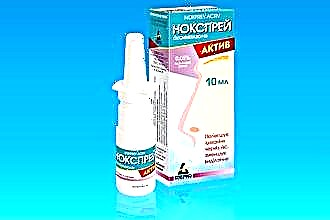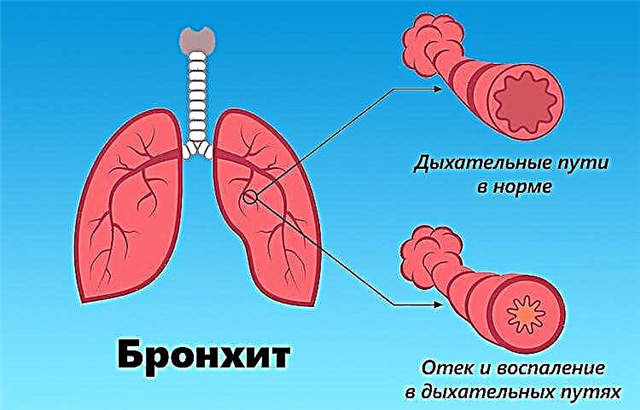Many people are treated for angina (acute tonsillitis) on their own or not at all, underestimating the severity of this pathology, or rather its possible consequences. If competent therapy is prescribed, which is carried out in a timely manner from start to finish, then no serious complications after a sore throat develop. Under the influence of certain factors, after tonsillitis, numerous serious complications can develop, the treatment of which is much more difficult and longer than the underlying disease. Why do complications develop and how can they be avoided?
Causes of sore throat and its consequences
 The cause of tonsillitis is the pathological effect of microbes on the mucous membrane of the nasopharynx, which occurs under the influence of risk factors:
The cause of tonsillitis is the pathological effect of microbes on the mucous membrane of the nasopharynx, which occurs under the influence of risk factors:
- a person's stay in drafts, under an air conditioner;
- hypothermia of the body;
- eating cold food or drinks;
- prolonged exposure to cold water;
- inflammation can develop after a throat injury;
- diseases of the immune system;
- chronic severe pathologies of the endocrine and cardiovascular system;
- impact on the mucous membrane of allergic microparticles.
Viruses can act as causative agents of sore throat:
- adenovirus;
- enterovirus;
- rhinovirus;
- herpes virus;
- influenza and parainfluenza virus;
- mononucleosis virus;
- respiratory syncytial virus.
Bacteria:
- streptococci;
- staphylococci;
- spirochetes;
- haemophilus influenzae;
- corynebacteria;
- Yersinia.
 Fungi of the genus Candida are the causative agent of the disease mainly after prolonged use of antibacterial drugs. The viral form of the disease is more common, caused mainly by the human herpes virus. The bacterial form develops most often under the influence of beta-hemolytic streptococcus.
Fungi of the genus Candida are the causative agent of the disease mainly after prolonged use of antibacterial drugs. The viral form of the disease is more common, caused mainly by the human herpes virus. The bacterial form develops most often under the influence of beta-hemolytic streptococcus.
When microbes begin their pathological effect on the body, human immunity responds by producing antibodies that attack the microbes. The problem is that hemolytic streptococcus, unlike other pathogens, has antigens, with the help of which bacteria adapt perfectly in the human body and are not recognized by immune cells.
Antigens are similar in structure to the cells of our body, therefore, in the fight against microbes, immunity destroys, in addition to bacteria, its own cells.
Under certain conditions, this leads to severe consequences.
Complications after a sore throat are somehow related to the state of immunity and the therapy taken:
- not started treatment on time;
- illiterate medical complex;
- improperly selected antibacterial agents;
- unfinished treatment;
- decreased resistance and reactivity of the body;
- decrease in general and local immunity.
The consequences of acute tonsillitis
Complications after tonsillitis are divided into two categories: local and general.
- Local complications: abscesses, otitis media, phlegmon, laryngeal edema, bleeding from the tonsils. The consequences of this category have a clear localization, beyond which they do not go. With timely assistance, the outcome is favorable.
- Systemic complications are characterized by a chain of immunological reactions involving bacterial antigens and immune antibodies. As a result of such processes, vital organs are affected: heart, joints, blood vessels, kidneys, blood, brain. The most severe organic lesions: blood poisoning, meningitis, brain abscess, glomerulonephritis, rheumatism, appendicitis, pericarditis.
The most dangerous local complication of sore throat is laryngeal edema
Danger to the heart
After a sore throat, the effects on the heart begin to manifest themselves 1-4 weeks after the symptoms of the underlying disease have disappeared. The most common complications in the heart are chronic tonsillitis. The following cardiac pathologies may occur:
- Rheumatism is caused by streptococci and is characterized by an inflammatory autoimmune reaction in various organs, most often in the heart and joints. In rheumatism, one's own cells and tissues are perceived by immune cells as hostile microorganisms. This specific reaction results in a severe and chronic course of the disease;
- myocarditis - inflammation of the heart muscle;
- pericarditis - inflammation of the layers of the pericardium (visceral and parietal);
- arrhythmia - violation of the rhythm of the heart, interruptions in the work of the organ;
- disturbances in the work of the heart valves, leading to defects,
- thromboembolism against the background of myocarditis.
More often children from three years old and adults up to 40 years old suffer from these diseases.
The main symptoms of complications that angina gives to the heart:
- rheumatic persistent pain and heart murmurs;
- shortness of breath, aggravated by exertion;
- swelling of the limbs. Constant swelling in the legs indicates the development of heart failure;
- cyanosis of the skin;
- fatigue, decreased performance, weakness, sweating;
- periodic increase in temperature to subfebrile;
- rapid pulse;
- pallor of the skin.
Treatment and prevention
 Complications after a sore throat are treated in a hospital setting, self-medication and home treatment in this case is completely excluded.
Complications after a sore throat are treated in a hospital setting, self-medication and home treatment in this case is completely excluded.
Untimely treatment of the consequences that angina gives on the heart can lead to the development of life-threatening conditions
Complex therapy includes the following activities:
- The patient is shown a long-term strict bed rest up to two months.
- A balanced diet with restriction of salty foods, liquids, vitamins, proteins.
- Antibiotic therapy is aimed at combating the causative agent of the infection.
- Non-steroidal drugs, antihistamines, glucocorticoids are prescribed to relieve inflammation and pain, normalize body temperature.
- Potassium preparations improve metabolic processes, accelerate regeneration in the damaged myocardium.
- Antiarrhythmic drugs, anticoagulants, vitamins, pain relievers are included in the complex of symptomatic therapy.
The duration of treatment of heart diseases against the background of angina is up to six months or more. The goal of therapy is to restore normal cardiac activity. Every 3 months the patient needs to undergo a control examination.
Angina has a negative effect on the heart. To avoid the development of cardiac pathologies after tonsillitis, you need to treat the underlying disease in a timely manner, follow all the doctor's recommendations, do not skip procedures, go through all stages of treatment, and strengthen the immune system.



